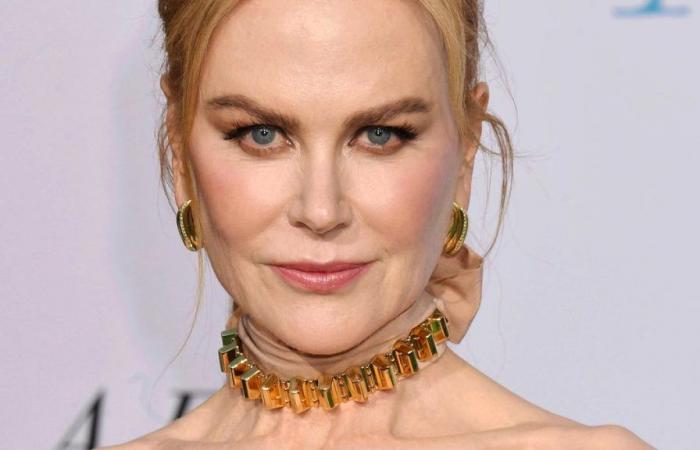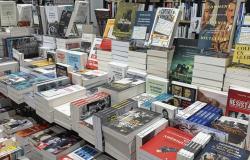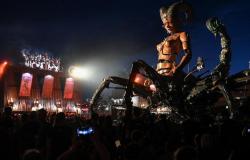Nicole Kidman loves mixing genres. Since her debut at the age of 16, the Australian-American actress has continued to expand her palette, playing everything from a revue leader in “Moulin Rouge” to an infanticidal mother in “The Others,” to novelist Virginia Woolf in “The Hours.” It’s no surprise that she’s starring in two diametrically opposed projects at the same time: “The Family,” a comedy on Netflix, and a drama miniseries, “Expats,” on Prime Video, both available now.
We can currently see you on two competing platforms in two totally opposite productions. It’s your choice?
Of course, because it’s important for me not to have the impression of only representing one type of woman. I am totally aware of having the chance to discover all the emotions that a woman can go through through these different roles that I am offered. Sometimes they are those of a strange, bizarre and difficult woman to play, but I have always refused to say no to a good script on the sole basis that the character was tough, or even detestable, on the contrary! I didn’t want to become an actress to be loved. If, like many actresses, I have deep admiration for a woman like Meryl Streep, it is because she has always known how to get involved in complex roles without worrying about preconceptions.
You also head up Blossom Films, which financed your mini-series “Expats.” What do you like about producing?
I am fortunate to be in a position where my presence can help unlock funding for a difficult project. “Expats” follows the story of a couple whose little boy goes missing in the middle of Hong Kong. I play his mother, Margaret, who never gives up hope. As a mother, I can totally identify with that desire to say, “No, I know my child is out there and I will find him.” She stubbornly refuses to accept anyone telling her otherwise. She just won’t stop.
You’ve said that your reaction to seeing the body of your father who died in 2014 helped you play Margaret. For what?
When Margaret and her husband go to the morgue and are told their son is there, I explained to the director, Lulu Wang, that I wanted to try something from my own experience. When my father died, when I went to the morgue, I laughed. I was so devastated to see his body that I had the most horrible reaction, which was I started shaking and laughing. My mother looked at me, shocked, and she had to slap me and say, “Nicole, stop!” There was such a short circuit in my brain… I’m ashamed to talk about it and at the same time, it’s true. And it’s based on the deepest love and not being able to handle such a situation. Thinking back on that ordeal, I thought, “This is how Margaret would feel arriving at the morgue to identify her son’s body.”
The director has also chosen to keep your idea and this sequence on the screen…
Yes and I can tell you that many viewers found themselves in this scene in the morgue. So many people came up to me afterwards and told me they had this situation where you start shaking and instead of crying, you shake with this strange laugh. It’s horrible. Horrible!






